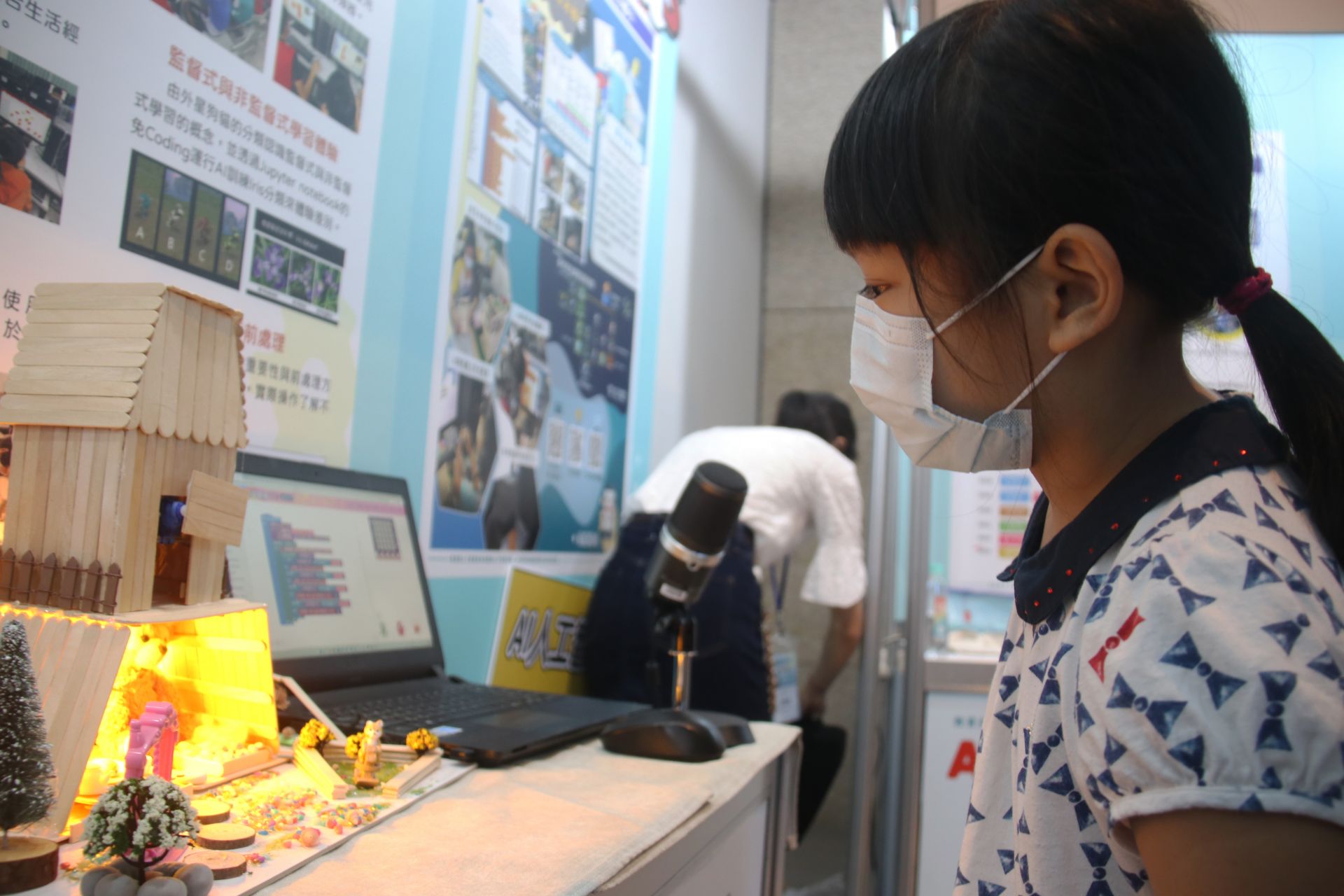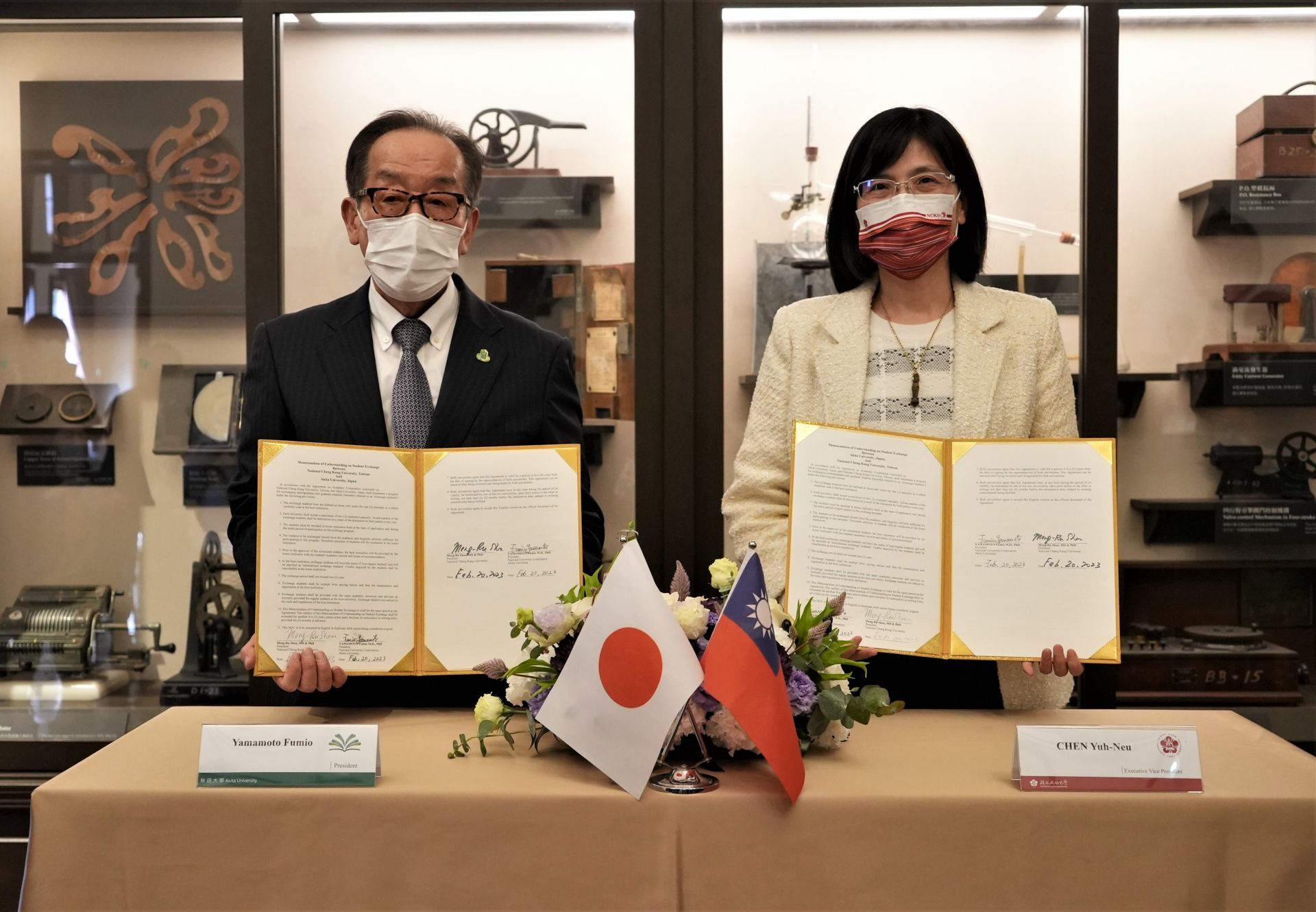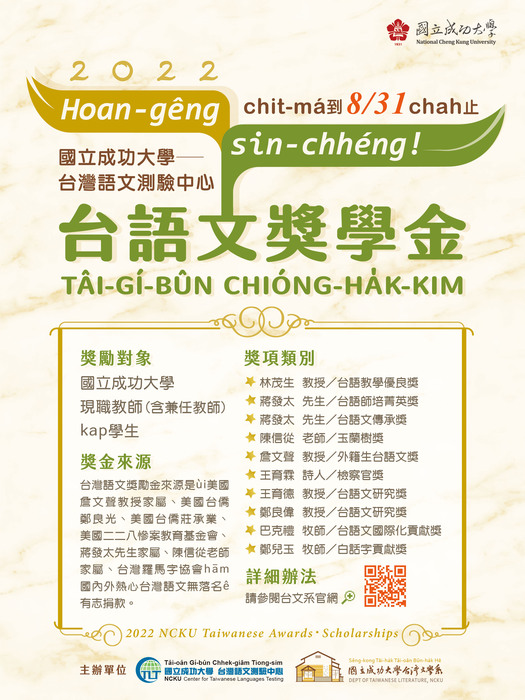SDG4
NCKU Teacher Education Center Conducts U.S. Teaching Practicum — 8 Student Teachers Gain Multicultural Experience
Supported by the Ministry of Education’s “Teaching Without Borders: Overseas Education Practicum Program,” the Center for Teacher Education at National Cheng Kung University (NCKU) successfully led its first overseas teaching practicum in an English-speaking country this year. In August 2025, a group of eight student teachers traveled to Herbert Hoover Middle School in Maryland, USA, for a two-week immersive educational experience. The delegation was led by Professor Su-Pin Hung, Director of the Center and principal investigator of the program. For the participants, this trip was not only an opportunity for hands-on international learning but also a milestone in developing multicultural perspectives on education.
Professor Hung noted that this marked the first time NCKU’s teacher education program entered a U.S. classroom. Herbert Hoover Middle School, known for its diverse student population and emphasis on Social and Emotional Learning (SEL), provides a nurturing environment where respect and inclusivity are central to teaching and learning—making it an invaluable site for pre-service teachers to experience firsthand.
Through an official collaboration with Montgomery County Public Schools (MCPS), NCKU’s student teachers were fully immersed in the daily operation of the host school. During the first week, they participated in the “preparation week” before the new school year—joining local teachers in team-building activities, interdisciplinary lesson planning, and school-wide preparations. From classroom setup to emergency drills, the participants gained deep insights into how SEL and teamwork are embedded in American school culture.
During the two-week teaching practicum, the eight NCKU student teachers each gained valuable insights and shared their unique experiences. Shu-Han Hsu (許舒涵), a master’s student at the Graduate Institute of Education, was most impressed by the school’s culture of “shared counseling responsibility,” where all teachers collectively support students’ emotional and behavioral needs. She realized that counseling competence is a skill every teacher must develop to ensure that every student receives timely support when needed. Yong-Chi Ma (馬永祈), a junior in the Department of Chinese Literature, was struck by the meticulous planning of the school’s special education programs. Meanwhile, Hsin-Lan Lee (李鈊嵐) and Yung-Ching Chuang (莊詠晴) from the Department of Foreign Languages and Literature admired the creativity of classroom teaching, particularly the use of group competitions and the so-called “mystery box” learning tool. Chiung-Jui Wang (王炯叡) from the Department of Environmental Engineering shared that combining laboratory safety rules with a puzzle-solving game transformed what could have been a dull safety lesson into a fun and engaging experience. Lastly, Fu-Chen Chen (陳馥真) from the Department of History observed that American middle schools place exceptional emphasis on emergency preparedness drills, including those for fires, natural disasters, and even active shooter incidents—far exceeding the practices in Taiwan. This led her to reflect on how similar crisis response education could be adapted and implemented in Taiwanese schools.
Beyond classroom observation, MCPS also arranged a Social and Emotional Learning (SEL) workshop to help NCKU students understand how SEL principles are integrated into the school’s culture. In the second week, they joined MCPS’s inaugural “Transition Day” for new students, observing how middle schoolers practiced navigating classrooms, using lockers, and bonding through team activities. During their final day, NCKU student teachers introduced Taiwanese culture by teaching local students Taiwanese greetings and sharing calligraphy artworks. Chun-Yi Lin (林俊義) , a senior student from the Department of Taiwanese Literature, left a calligraphy work at the practicum school, marking a perfect conclusion to the overseas teaching practicum journey.
Learning extended far beyond the classroom during this journey. Professor Hung led the NCKU student teachers to visit the Education Division of the Taipei Economic and Cultural Representative Office (TECRO) in the United States, where they learned about the career pathways and scholarship opportunities available for overseas Mandarin teachers. The group also participated in pre-semester professional development workshops at the Taiwan School of Washington and Li-Ming Chinese Academy. Yun-Ting Huang (黃筠庭) , a student from the Graduate Institute of Education, shared that through these visits, she deeply appreciated the dedication of overseas Taiwanese schools in promoting Taiwanese culture and preserving language heritage among the global diaspora. During leisure time, the group visited Washington, D.C., exploring museums and monuments that enriched their cultural understanding. Some reflected on the value of peace while visiting war memorials, while others humorously recalled registering for classes beneath the Washington Monument—an unforgettable memory from their journey.
The “Teaching Without Borders” program aims to broaden student teachers’ global perspectives and multicultural awareness, strengthening their cross-disciplinary teaching capabilities. Through this international practicum, NCKU’s participants not only gained firsthand experience in bilingual education but also observed how SEL is effectively implemented in international schools. Professor Hung expressed hope that this partnership with MCPS will continue to deepen in the future, allowing Taiwan’s education system to flourish through global exchange, innovation, and diversity.
Professor Hung noted that this marked the first time NCKU’s teacher education program entered a U.S. classroom. Herbert Hoover Middle School, known for its diverse student population and emphasis on Social and Emotional Learning (SEL), provides a nurturing environment where respect and inclusivity are central to teaching and learning—making it an invaluable site for pre-service teachers to experience firsthand.
Through an official collaboration with Montgomery County Public Schools (MCPS), NCKU’s student teachers were fully immersed in the daily operation of the host school. During the first week, they participated in the “preparation week” before the new school year—joining local teachers in team-building activities, interdisciplinary lesson planning, and school-wide preparations. From classroom setup to emergency drills, the participants gained deep insights into how SEL and teamwork are embedded in American school culture.
During the two-week teaching practicum, the eight NCKU student teachers each gained valuable insights and shared their unique experiences. Shu-Han Hsu (許舒涵), a master’s student at the Graduate Institute of Education, was most impressed by the school’s culture of “shared counseling responsibility,” where all teachers collectively support students’ emotional and behavioral needs. She realized that counseling competence is a skill every teacher must develop to ensure that every student receives timely support when needed. Yong-Chi Ma (馬永祈), a junior in the Department of Chinese Literature, was struck by the meticulous planning of the school’s special education programs. Meanwhile, Hsin-Lan Lee (李鈊嵐) and Yung-Ching Chuang (莊詠晴) from the Department of Foreign Languages and Literature admired the creativity of classroom teaching, particularly the use of group competitions and the so-called “mystery box” learning tool. Chiung-Jui Wang (王炯叡) from the Department of Environmental Engineering shared that combining laboratory safety rules with a puzzle-solving game transformed what could have been a dull safety lesson into a fun and engaging experience. Lastly, Fu-Chen Chen (陳馥真) from the Department of History observed that American middle schools place exceptional emphasis on emergency preparedness drills, including those for fires, natural disasters, and even active shooter incidents—far exceeding the practices in Taiwan. This led her to reflect on how similar crisis response education could be adapted and implemented in Taiwanese schools.
Beyond classroom observation, MCPS also arranged a Social and Emotional Learning (SEL) workshop to help NCKU students understand how SEL principles are integrated into the school’s culture. In the second week, they joined MCPS’s inaugural “Transition Day” for new students, observing how middle schoolers practiced navigating classrooms, using lockers, and bonding through team activities. During their final day, NCKU student teachers introduced Taiwanese culture by teaching local students Taiwanese greetings and sharing calligraphy artworks. Chun-Yi Lin (林俊義) , a senior student from the Department of Taiwanese Literature, left a calligraphy work at the practicum school, marking a perfect conclusion to the overseas teaching practicum journey.
Learning extended far beyond the classroom during this journey. Professor Hung led the NCKU student teachers to visit the Education Division of the Taipei Economic and Cultural Representative Office (TECRO) in the United States, where they learned about the career pathways and scholarship opportunities available for overseas Mandarin teachers. The group also participated in pre-semester professional development workshops at the Taiwan School of Washington and Li-Ming Chinese Academy. Yun-Ting Huang (黃筠庭) , a student from the Graduate Institute of Education, shared that through these visits, she deeply appreciated the dedication of overseas Taiwanese schools in promoting Taiwanese culture and preserving language heritage among the global diaspora. During leisure time, the group visited Washington, D.C., exploring museums and monuments that enriched their cultural understanding. Some reflected on the value of peace while visiting war memorials, while others humorously recalled registering for classes beneath the Washington Monument—an unforgettable memory from their journey.
The “Teaching Without Borders” program aims to broaden student teachers’ global perspectives and multicultural awareness, strengthening their cross-disciplinary teaching capabilities. Through this international practicum, NCKU’s participants not only gained firsthand experience in bilingual education but also observed how SEL is effectively implemented in international schools. Professor Hung expressed hope that this partnership with MCPS will continue to deepen in the future, allowing Taiwan’s education system to flourish through global exchange, innovation, and diversity.

MCPS administrators, Montgomery County councilmember, and the chair of the Montgomery County Board of Education visit Herbert Hoover Middle School to observe the NCKU student teachers’ practicum

NCKU student teachers share Taiwanese culture in local classrooms

NCKU student teachers join U.S. teachers in pre-semester professional development activities, brainstorming and exchanging teaching ideas together

Program director and NCKU Center for Teacher Education Director, Professor Su-Ping Hung, leads the NCKU student teachers to visit the Education Division of the Taipei Economic and Cultural Representative Office (TECRO) for discussions and exchange






















